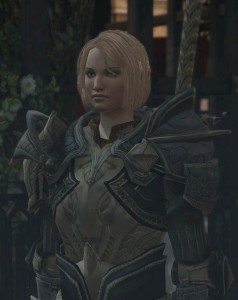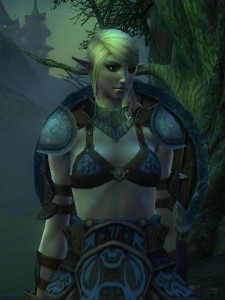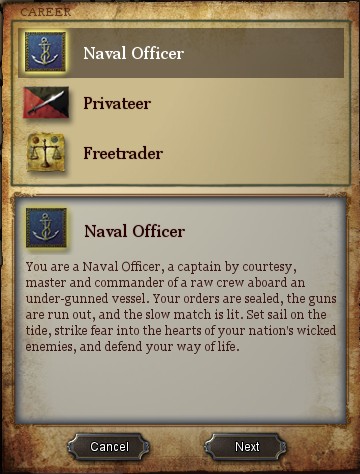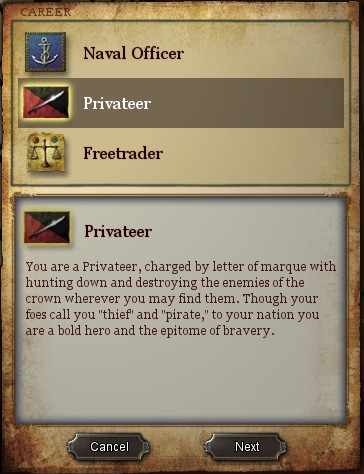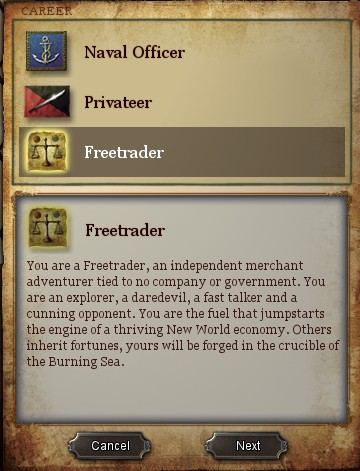I just finished the second act of Dragon Age 2, and I don’t think it’s too much of a spoiler to say there was a big fight at the end of it. If you thought it might culminate in everyone sitting down and having a lovely cup of tea, sorry to have ruined the surprise. Being an honourable sort I found myself in single combat against a big man who certainly wasn’t in bad shape, but as a dagger-wielding Rogue I was pretty confident I could put out enough damage to take anything down. Seconds out, round 1, I activate Rush to knock him down as an opener, bounce off him with no discernible results (possibly some light damage to my own shoulder), he knocks me down, I get back up, he knocks me down, I get back up, he stamps a foot a couple of times, charges, knocks me down, I get back up, he impales me on his sword and waves me around like a Hawke Kebab. I’m not sure which was more impressive: that he only needed one hand to heft my writhing body while the other grabbed a pitta bread, some salad and a bottle of chilli sauce, or that he sportingly set me down, withdrew the sword, and I somehow was still fighting rather than scrabbling around on the floor in strangely inverted game of Operation trying to figure out whether a squidgy mess was a lung or a kidney, and which way it should fit back into the gaping cavity that used to be my chest. Still fighting for about ten seconds, at least, until he knocked me down again and finished me off.
Reloading, I took the fight seriously. Boxed clever, avoided his telegraphed knock-down attacks, got my shots in carefully, used my most damaging abilities, and maybe knocked off about 25% of his health. Meanwhile I had no stamina, my big attacks were on cooldown and he’d still catch me now and again for a substantial portion of my own health, so the fight entered the Benny Hill phase: me running away, quaffing health and stamina potions, occasionally running back in and hitting him, then running away again. Varric started playing Yakety Sax, Isabela put on a nurse’s hat (the rest of her outfit already being eminently suitable), the cinematographer started undercranking and a fine old time was had for what felt like about 6 months, during which I maybe knocked off another 25% of my opponents health. I switched to a bow, in case ranged kiting was a more effective technique, but being completely specialised in dual blades I lacked any special skills with it, and the regular attacks seemed to make no impression at all. I had no exotic grenades or poisons as there’d been no call for them on Normal difficulty, so I took the noble and heroic course of action, turned the difficulty down to Casual and slashed him one way, slashed him the other way, slashed him diagonally, much like Connect 4 in dagger terms. He went down, on with the story.
The fight crystallised something I’d been thinking about for a while. I don’t really want to constantly be facing a life-or-death struggle needing every scrap of my abilities to emerge victorious when partaking of a bit of escapism, I’d like to win, thanks. Not without any effort at all, of course, that would render it pointless, but if the deck is stacked pretty heavily in my favour, as in the majority of fights at Normal difficulty in Dragon Age 2, that’s not a problem. So long as the game isn’t too obvious about it, I do like to at least fool myself that my character wouldn’t be more effective still if a hamster started running around on the keyboard. In Madame Gaming’s Boudoir of Earthly Delights I know full well I’m just another punter pitching up with my $15 a month, but I’d prefer my companion for the evening to coo “oh my, such a big weapon you have, I’ve never seen one that size before” rather than looking bored and chewing gum while disinterestedly muttering “wow that’s incredible, really, you’re the best, what time is it? Have you not finished yet?”
Course that’s not for everyone; “no pain, no gain” and all that, some people prefer to pay their money to be brutally thrashed for a couple of hours. In MMOGs in particular there seems to be a bit of Calvinist element devoted to Hard Work above all, at the most extreme end holding any sort of “fun” or “enjoyment” in contempt, or more moderately pointing out that experience is about contrasts, if you don’t suffer the lows, how can you truly enjoy the highs? Hard to argue with the latter, but plenty of scope for debate over the ideal ratio of lows to highs and their respective depths/heights (to use a cinematic example, The Shawshank Redemption is uplifting, but as Kermode & Mayo would say “there’s a lot of Shawshank before you get to the Redemption”).
In single player games there’s often a difficulty slider to allow for this: demand a challenge, crank it up; not so bothered, drop it down. I’ve (just about) passed the point where I consider dropping down to an easier difficulty as some sort of sleight on my masculinity; I see it like reaching the stage where you realise you’re not really enjoying clubbing, you’re finding the music awfully loud, and it’s harder to keep going through the early hours of the morning, and really, what’s wrong with sitting in some nice comfy chairs where you can actually hear your friends and you can come away with some change from a twenty pound note if you order two lemonades and a pint? Least, I might see it like that if I ever enjoyed clubbing in the first place.
For PvE in MMOGs the content tends to be more fixed (though difficulty sliders aren’t completely unknown, City of Heroes features them), but the capability of the player or group can vary widely, and it’s not so simple as dragging a slider to adjust the number of people you bring, or their classes, levels or gear. If you listen to the Van Hemlock podcast you’ll have been following the tribulations of Hobbington Crescent: The Next Generation in Lord of the Rings Online attempting to find something suitable to do for a group of nine characters with far-from-ideal class balance; 12-man skirmishes are a bit brutal, and though the voice chat on Mumble can still make for a fun evening there isn’t much of an in-game sense of triumph when you notionally “win” a skirmish with 90% of the hobbits you were supposed to be protecting dead, and the final boss only defeated by throwing endless waves of respawning players at him until he gets so weary of the futility of it all that he allows himself to be crushed by a pile of your own corpses. Warhammer Online, on the other hand, with its wide range of public quests for different group sizes and levels, you can quite easily step up or down to find something more appropriate (though it blots its copybook on occasion when bugs prevent you from completing a stage). I really rather enjoy tackling a public quest a couple of levels below my character when the first stage is “Defeat 100 (somethings)”, and start humming the Katamari Damacy theme while rounding up mobs with my Chosen in a bid to meet the requirement in a single pull. It might not be a life-or-death struggle (so long as a friendly healer tops up the ol’ health bar now and again), but it’s tremendous fun.
PvP is naturally trickier still, as you haven’t even got one fixed side to try and work around; in open PvP you’re obviously at the mercy of whoever shows up, and even in an instanced battleground/scenario type of fight, no matter how hard the matchmaking tries I’ve found well matched battles comparatively rare. If there’s going to be a drubbing I’d prefer to be the drubber than the drubbee, but at least you can always take comfort in the knowledge that your victories are down to incredible skill, whereas any losses are obviously due to there being more of the enemy, at higher levels, wearing better gear, and playing clearly overpowered classes (go go Dunning-Kruger effect!) I think this is why I seldom enjoy ‘friendly’ PvP such as informal intra-guild battles, as getting balanced sides set up is just as difficult (if not more so, as Murphy’s Law dictates that the number of people who turn up is inevitably not divisible by the number of possible sides), but victories are pretty hollow when you’re sharing the chat channel with the people you beat, and it’s bad form to grouse about the obviously overpowered build of a comrade. A bit of a free-for-all knock-around can be fun now and again, so long as nobody takes it too seriously (I think it was the Gurubashi Arena in WoW that was the venue for some entertaining guild outings that featured a lot of sapping and sheeping), but generally give me a dehumanised foe to put the virtual boot into, and I’m much happier.
